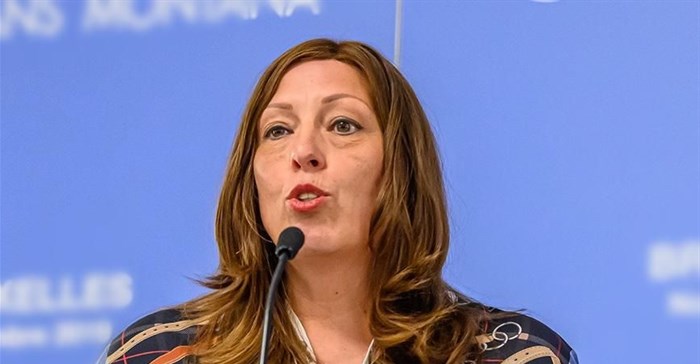"If women have economic empowerment, they have a voice and a choice." That is the word from Anita de Werd, Maersk global head of marketing and business development for Africa, who was talking to Bizcommunity about marketing trends and Maersk's project to empower women entrepreneurs across Africa with knowledge of how to trade globally.

Anita de Werd.
Maersk is in partnership with She-Trade, an initiative from the International Trade Centre, which aims to connect three million women entrepreneurs to global markets by 2021. As a leading enabler of global trade, Maersk is looking at opportunities to partner with female entrepreneurs in order to give them greater access to cross-border and inter-continental trade.
The International Trade Centre is a multilateral agency which has a joint mandate with the World Trade Organization and the United Nations through the United Nations Conference on Trade and Development. Through its work, the ITC contributes directly to 10 of the UN Sustainable Development Goals.
De Werd said the main aim with the She-Trade partnership was to build capacity and mentor women entrepreneurs, particularly in Africa where the need was greatest.
“We are trying to break down the barriers to learning for female entrepreneurs,” said De Werd. Maersk is providing information to women entrepreneurs on cross-border trade; how to remove barriers to trade; having its employees mentor female entrepreneurs; and providing webinars for female entrepreneurs who want to learn more about trade.
“Across the world, and predominantly in Africa, women entrepreneurs are the backbone of the economy. If women have economic empowerment, they have a voice and a choice. It is so exciting to be in Africa now and to look at opportunities to bring female entrepreneurs to trade.”
One of the biggest barriers for women entrepreneurs is access to financing. “We are looking into the possibility of bringing in a micro-financier on board through She-Trade.”
Right now, their priority is to build capability through access to training and webinars and video content ceded through social media. De Werd says there is a “hunger” to understand logistics.
She said Maersk wants to demystify trading – from customs house brokerage; to what it means to clear your goods; what documents are involved; what do you need to pay attention to; how to book a container; what to pay attention to; what does it mean to trade and how to connect with the right people; insurance required; the different ways to ship goods; what all the terminology means; and so on.
Part of the learning for Maersk, De Werd says, was a deeper understanding of the trade journey an entrepreneur makes. They are now running pilots on an end-to-end basis, following entrepreneurs on their journey and sharing those learnings with others on the programme.
“I would like to see that we can enable the global trade for the female entrepreneur. There are so many variables in each trading area, there are so many places that we can play a role in demystifying trade. We still have a lot of work to do, there is no one size fits all.”
Her message to women entrepreneurs out there is: “Don’t give up!”
De Werd continued: “There are days that can be so difficult. You need to be strong to be an entrepreneur, so that even when everything is down, you have to pick yourself up and build a business, find that power and strength, and never, ever give up.
“And don’t let anyone tell you, you can’t do it. It’s a double-edged sword: women in Africa are the backbone of society, but in so many societies, they are treated like second class citizens. Women need to take the power back.”
Women in business particularly needed to focus on building networks around them to aid their empowerment. “Equality as a whole is the biggest achievement in our age and the legacy we leave our children,” De Werd emphasised.


















![By PMO - Ethiopia - [1], Public Domain,](https://biz-file.com/c/2509/787241-64x64.jpg?5)








